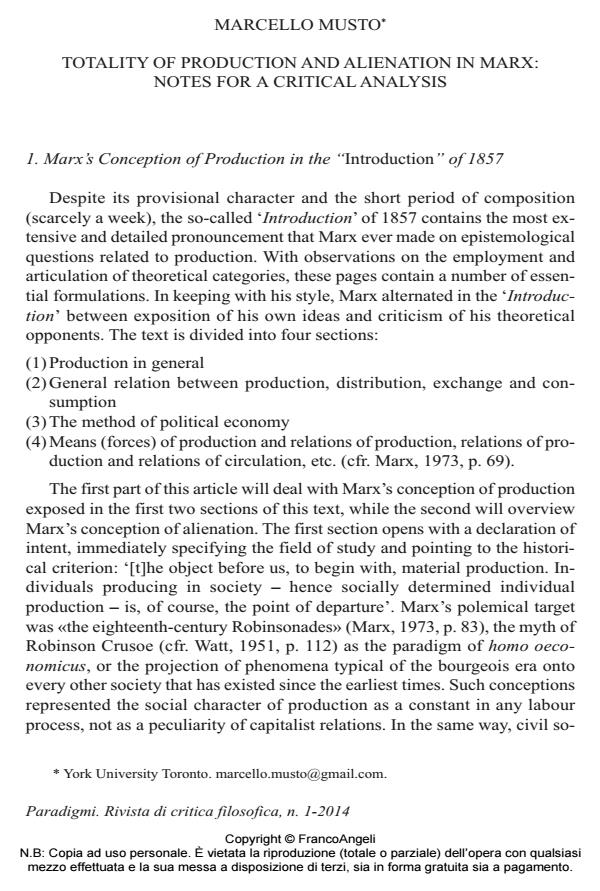Totality of production and alienation in Marx: notes for a critical analysis
Titolo Rivista PARADIGMI
Autori/Curatori Marcello Musto
Anno di pubblicazione 2014 Fascicolo 2014/1
Lingua Italiano Numero pagine 22 P. 89-110 Dimensione file 537 KB
DOI 10.3280/PARA2014-001006
Il DOI è il codice a barre della proprietà intellettuale: per saperne di più
clicca qui
Qui sotto puoi vedere in anteprima la prima pagina di questo articolo.
Se questo articolo ti interessa, lo puoi acquistare (e scaricare in formato pdf) seguendo le facili indicazioni per acquistare il download credit. Acquista Download Credits per scaricare questo Articolo in formato PDF

FrancoAngeli è membro della Publishers International Linking Association, Inc (PILA)associazione indipendente e non profit per facilitare (attraverso i servizi tecnologici implementati da CrossRef.org) l’accesso degli studiosi ai contenuti digitali nelle pubblicazioni professionali e scientifiche
L’‘Introduzione del 1857’ ai Grundrisse è il più ampio e dettagliato pronunciamento di Marx sulle questioni epistemologiche, ed è una importante fonte per comprendere la sua idea di "produzione". A partire dal 1960 la diffusione dei Grundrisse ha permesso di ripensare l’alienazione in un nuovo modo rispetto a quello prevalente in sociologia e psicologia. Questo ripensamento era volto al superamento dell’alienazione nella pratica mediante l’azione politica di movimenti sociali, partiti e sindacati, al fine di cambiare il lavoro e le condizioni di vita della classe lavoratrice. La pubblicazione di ciò che può essere definita la "seconda generazione" degli scritti di Marx sull’alienazione, ha fornito non soltanto una baseteoretica coerente per nuovi studi sull’alienazione, ma soprattutto una piattaforma ideologica anticapitalista per lo straordinario movimento politico-sociale che esplose nel mondo in quegli anni.
Parole chiave:Alienazione, economia, produzione, Grundrisse, feticismo, Capitale.
Marcello Musto, Totality of production and alienation in Marx: notes for a critical analysis in "PARADIGMI" 1/2014, pp 89-110, DOI: 10.3280/PARA2014-001006